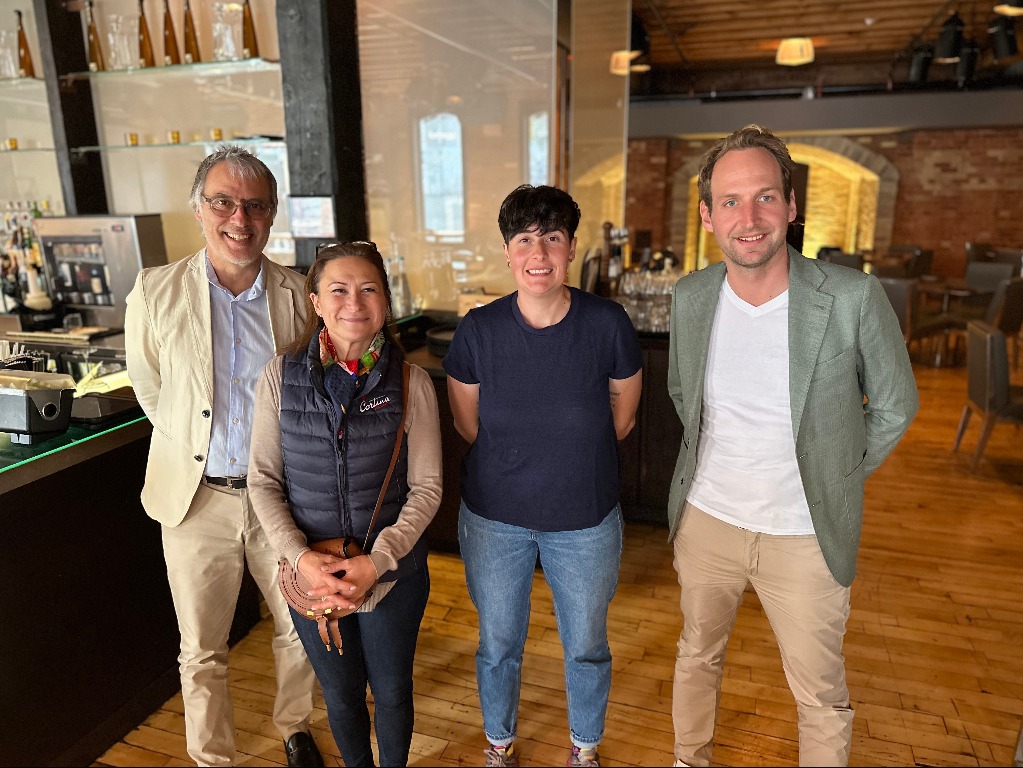Avoid Chaos And Fragmentation At All Costs

There are things you want to hear and then, there are things that you need to hear.
A newly released report by the Migration Policy Institute (MPI) is something you need to hear, or at the least, need to read.
MPI’s report maps how different policy choices could dramatically shape the next few years of international mobility, and offers a framework for how countries can navigate complex health, security and economic pressures.
It has been more than a year since the COVID-19 pandemic abruptly halted most cross-border mobility and travel restrictions continue to make movements of all kinds costly and chaotic.
In “Future Scenarios for Global Mobility in the Shadow of Pandemic,” MPI outlines four possible scenarios for mobility that could emerge over the next few years, depending on policymakers’ risk tolerance, the efficacy of vaccinations and therapeutics, the progression and mutations of the virus and appetite for coordinated investments in public health infrastructure.
MPI’s four scenarios include:
- Scenario 1: Pandemic Proofing — In this scenario, much as security considerations after 9/11 dominated decisions on whom to let into a country, public health will decisively shape international standards and procedures for risk assessment, emergency travel restrictions, expanded health data sharing and consistent testing and screening. By increasing and standardizing such requirements, this new system would benefit institutionalized mobility pathways. But it would amplify the divide between “movers” and “non-movers,” in the process creating even more lucrative markets for smugglers.
- Scenario 2: Mobility with Friends — Here, even as the creation of common international standards and procedures for cross-border movement remains a work in progress, some regions will have swiftly standardized public health procedures and even formed bilateral agreements to revive mobility. But the global picture will continue to be fragmented, with ongoing disruptions, especially in regions that lack capacity.
- Scenario 3: Chaos and Fragmentation — In this scenario, decisions about travel restrictions and health requirements are primarily taken unilaterally and poorly communicated, and new tools and solutions to restart mobility safely struggle to get beyond the pilot phase. The uneven vaccine rollout and emergence of virus variants further fragments responses and most migration and mobility remains stalled, apart from the movement of essential workers, certain high-skilled migrants and returning nationals and residents.
- Scenario 4: Pre-Pandemic Status Quo — In this scenario, which the report calls the least likely, the world returns to pre-pandemic norms around travel. For this to happen, almost all countries would have to reach herd immunity to COVID-19 through some combination of vaccines and/or biological immunity. But the threat of a future outbreak would still linger, making this scenario extremely fragile.
MPI director for international research and author of the report, Meghan Benton points out that international mobility will have to navigate a seismic shift in approaches to border management under all plausible scenarios.
And Benton warns that The Chaos and Fragmentation scenario should be avoided at all costs, which could leave more migrants and travellers stranded, create incentives to circumvent restrictions or forge documents, or lead to more irregular movement.
Said MPI’ director for international research: “Many countries are looking inwards, focused on reducing the threat of the latest troubling variant, but they need to look ahead and work together to safely get the world moving again.”
She continued: “Burdensome, costly and complex health requirements and travel restrictions throw gravel in the wheels of mobility, and are failing to hit their mark as a tool of public health. As governments look to open up safely, they will need to cooperate with one another to ensure that rules are proportionate, equitable, well publicized and easy to follow.”
MPI’s report recommends that policymakers further consider a range of questions, including how to introduce vaccine requirements without leaving people out and how to complement such requirements with testing and quarantine protocols that are proportionate to risk.
It also argues that as governments move beyond using travel restrictions as a tool of deterrence, they need to be clear about the goal they are serving, which may change during the course of the pandemic, and embed these in a risk management approach.
The report is part of a project with the International Organization for Migration (IOM), “From Chaos to Coordination: Mobility during and after COVID-19,” and draws partly from virtual roundtables and discussions organized by MPI’s Transatlantic Council on Migration.
For more, go to www.migrationpolicy.org/research/future-scenarios-global-mobility-pandemic.
The Migration Policy Institute (MPI) is an independent, non-partisan, non-profit think tank in Washington, DC dedicated to analysis of the movement of people worldwide. MPI provides analysis, development and evaluation of migration and refugee policies at local, national and international levels.


